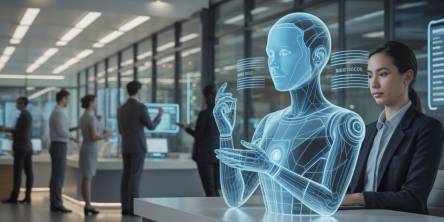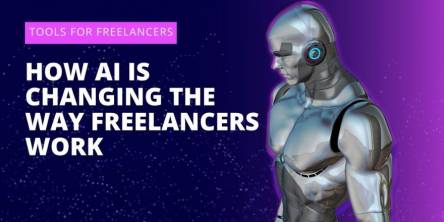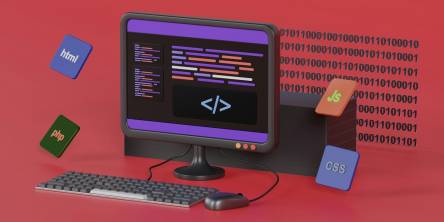AI-Copilots: Your Smart Digital Assistant Partner

In today's fast world, we need tools that make our lives easier. are here to help. They use the latest AI to make our work smoother and more personal.
The world of has changed how we interact with technology. now understand us better than ever before. They learn our habits and work styles to help us more effectively.
AI-copilots can do a lot for us. They help with scheduling, managing tasks, and even writing reports. They use AI to guess what we need and suggest ways to save time.
Understanding AI-Copilots and Their Evolution in Digital Assistance
AI-powered digital assistants, or "AI-copilots," have changed how we use technology today. They use natural language processing (NLP) and advanced language models. This lets them talk to us in a way that feels natural.
The Core Technology Behind AI Companions
AI-copilots are built on fast progress in NLP. This field helps machines understand and make human language. They use machine learning and big language models to get what we say, find what we need, and answer us back.
From Simple Chatbots to Advanced Digital Partners
AI-copilots have grown from simple chatbots to smart digital helpers. The first ones were based on simple rules and didn't get language very well. But generative AI has made them much better. Now, they can talk like us, using lots of information to help us in a personal way.
Key Components of Modern AI-Copilots
- Strong natural language processing algorithms for smooth talking
- Big language models trained on lots of data to understand and create better
- Smart knowledge bases to find and share important info
- Adaptive learning to make the experience more personal over time
"The mix of natural language processing and language models has been a big change. It lets AI-copilots really talk to us in a natural and easy way."
As AI-copilots keep getting better, we're seeing more ways for humans and machines to work together. This is leading to a future where digital helpers are a big part of our lives.
AI-Copilots: Your Smart Digital Assistant Partner
In today's fast world, we need tools that make our lives easier. AI-copilots are here to help. They use the latest AI to make our work smoother and more personal.
The world of AI-copilots has changed how we interact with technology. AI-copilots now understand us better than ever before. They learn our habits and work styles to help us more effectively.
How AI-Copilots Transform Daily Workflow and Productivity
AI-powered digital assistants, or AI-copilots, have changed how we work and get things done. They work with our apps and software, making routine tasks easier. They also give smart tips to make our work smoother.
AI-copilots help with writing reports, emails, research, and data analysis. They use machine learning and natural language processing. This means they can guess what we need, give us tailored advice, and help solve tough problems. This saves us time and mental effort.
AI-copilots also improve how we manage our time and make decisions. They can sift through lots of data and give us insights right away. This helps us make better choices, making our work more efficient. As we learn more about AI-copilots, they will make our digital lives even better.
FAQ:
What are AI-copilots and how do they work?
AI-copilots are smart digital helpers that use artificial intelligence to make our lives easier. They understand what we say and offer helpful advice and solutions. This is thanks to their advanced technology.
How do AI-copilots differ from traditional chatbots?
AI-copilots are more advanced than old chatbots. They can have real conversations, know a lot, and help with many tasks. This makes them more useful than traditional chatbots.
What are the key components of modern AI-copilots?
Modern AI-copilots have a few important parts. These include natural language processing, language models, and knowledge bases. They also use machine learning to get better at understanding and helping us.
How can AI-copilots transform daily workflow and productivity?
AI-copilots can make our work easier and more efficient. They automate tasks, give smart ideas, and help solve tough problems. They work well with other tools to help us manage our time and tasks better.
What are the potential use cases for AI-copilots?
AI-copilots can help in many areas, like writing, research, planning, and even making decisions. They can also suggest personalized ideas and help with complex tasks.
Similar Articles
Bring still images to life with make a photo talk AI tools. Learn how to create a natural AI talking avatar using Media.io's powerful audio-video models and templates.
AI agents are no longer an experiment in financial institutions. They are becoming the operational engine that powers real time decisioning, proactive fraud defense, precise risk scoring, and automated compliance workflows.
Banks are facing a moment of truth. Customer expectations are rising faster than most institutions can reshape their operating models.
How AI SDRs turn first contact into booked meetings with smart outreach strategies in this step-by-step journey breakdown.
How AI is transforming freelancing by boosting productivity, streamlining tasks, and reshaping the future of independent work.
AI chatbots are reshaping scam prevention with real-time detection, deepfake defense, and personalized protection against cybercriminals.
When I first started working in branding, creating a logo was a long and expensive process. Ordering from a designer required weeks of discussions and a budget that small businesses often couldn’t afford.
Generative AI is not just another addition to the toolbox of products; it will soon serve as the co-pilot for the entire lifecycle process, including discovery and delivery.
Learn how AI code generation speeds up software development by reducing repetitive tasks, improving code quality, and supporting Agile and DevOps teams.









